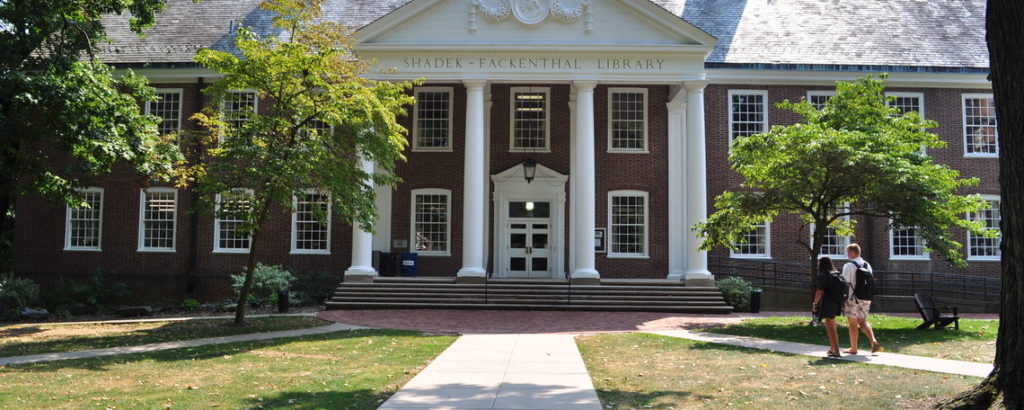
By Santure Chen || Contributing Writer
This semester, the Martin Library will close 2 hours earlier. Now, it closes at 12am, same as the Shadek-Fackenthal Library and many other buildings. Noticing the controversy caused by this change, The College Reporter interviewed College Librarian Scott Vine. We tried to contact the author of the posters too, but the effort failed.
Posters on the Protest Tree imply that the administration made this decision under the pressure of the budget. According to Inside Higher ED’s report in February, our college faces an $8 million budget deficit, and President Altmann announced her intent to address the ¾ gap within this academic year. However, Vine states that lower building use over time, staffing overlap, and student and staff wellness concerns drive this decision. He also emphasizes that “there are no significant savings from utilities.”
On the other hand, Lancaster Online has reported that F&M decided to cut around 40 staff members due to financial reasons. It is questionable if the “staffing overlap” is caused by the staff cut plan. Besides, Spokesman Gregory Wright said the average financial aid package awarded to a student is $50,500. Although our nominal tuition is 7th highest in the nation according to the protest posters, how much remains after subtracting the huge financial aids which still is increasing fast?
Responding to the concern of education quality, Vine says that the college libraries have added a lot of new resources, spaces, and technology, and the Q&SC has more available tutoring hours, which “are used well many days and evenings.” Vine shows that the statistical data over several semesters depicts a daily average of 10-50 people who stay in the library at 11:30 pm, and 3-15 people remain in the library at 1:30am, depending on the day and month. This data implies that only a few people need the library after midnight. However, just because 3-15 people remain in the library then doesn’t necessarily mean only 3-15 people have visited the library at that time. Students indeed may not study post-midnight all the time, but it is not true to say they don’t study past midnight at all. Everyone might encounter some unexpected emergency that forces them to stay up late. In fact, at the Diplomatic Congress meeting last Thursday, almost everyone raised their hand when President Sneath asked “who ha[d] studied after midnight at least once last semester.”
For students who want to study late, the school provides other options. “All of our e-resources – hundreds of thousands of e-books, scholarly databases, online journals, and streaming films remain available all the time at library.fandm.edu,” Vine says. If you need a space to study, LSP and Stager Hall are open to students overnight. Nevertheless, those options don’t make students satisfied. Some people prefer to read paper instead of screen, and as one representative at DipCon meeting argues, studying in those spaces is less comfortable than studying in the library. Vine also mentioned that the college has talked about finding a way to create a small, unstaffed 24-hour study space either in one of our libraries or elsewhere on campus, but safety concerns and a growing awareness of health and wellness are issues often brought up in conversation.
After all, The DipCon asked our school to open a small space for studying after midnight. Vine agreed, and the detail will be discussed later. We will continuously report the progress.
First-year Santure Chen is a Contributing Writer. Their email is hchen2@fandm.edu